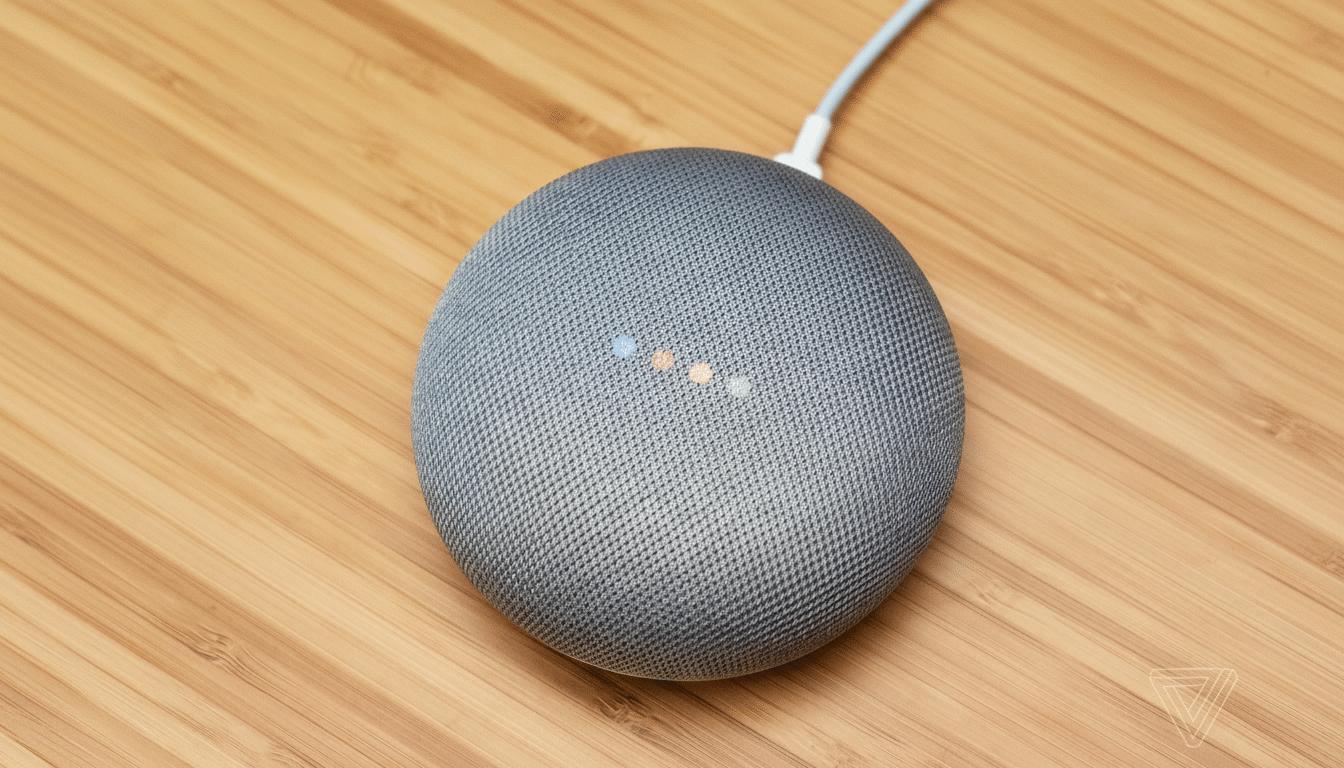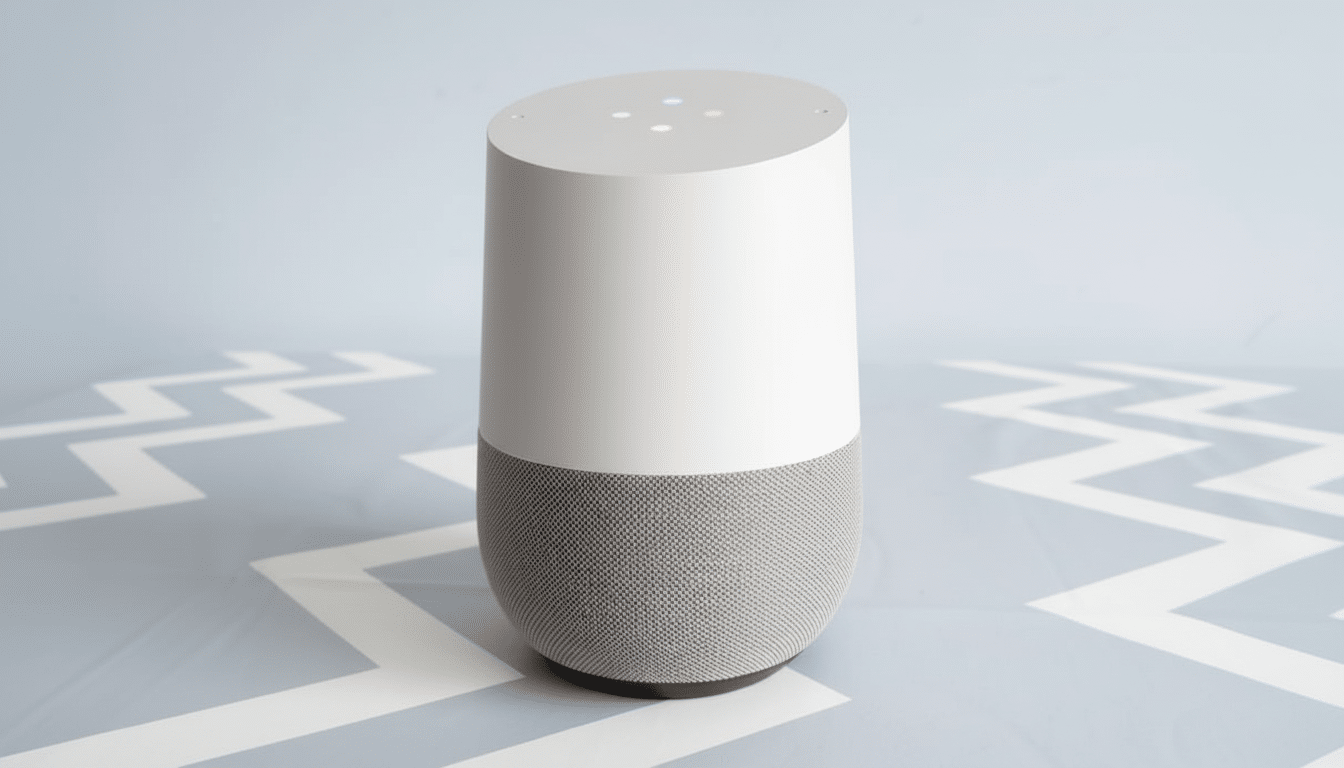Google Home is hitting a pivot point after years of uneven progress. The company is planning a wholesale reset with a smarter assistant, simplified app and renewed hardware push. If they do, Google’s smart home strategy might pick up momentum; if not, the platform is in danger of retreating into perpetual also-ran status.
Why This Inflection Point Is Critical for Google
Trust is the scarcest currency in the smart home. Voice commands that miss the mark every so often become habits that people give up on using. Reliability issues and unintuitive controls have since led many households to other ecosystems, or off voice entirely.
- Why This Inflection Point Is Critical for Google
- Gemini Is the Make-Good Test for Google Home Devices
- The Google Home App Must Get Out of the Way With a Cleaner UI
- New Hardware Would Signal Google’s Long-Term Commitment
- Ecosystem Stakes and Developer Confidence at Risk
- What to Watch for in Google Home’s Coming Reset

Market trackers like CIRP and IDC have seen Amazon consistently ahead of Apple in the U.S. installed base, with a smaller one for Apple, growing slowly there.
Google is somewhere in the middle: not inconsequential, but far from being the default. The next steps need to show the fundamental speed, accuracy and stability Google can deliver every day, not just in demos.
Gemini Is the Make-Good Test for Google Home Devices
Google’s move from Assistant to Gemini on smart speakers and displays is not simply a rebrand. It’s an opportunity to right the criticisms that have dogged smart speakers from the start — unpredictable wake words, lagging responses and fragile follow-throughs. On watches and phones, early user feedback as well as hands-on reports have highlighted how Gemini is faster at parsing context, and more capable of taking complex, multi-step requests. The real test is replicating that consistency in far-field microphones.
Success appears quantifiable: reduced latency, fewer “sorry I didn’t understand” dead-ends and reliable multi-turn conversations. You can expect tighter cross-device continuity as well — start viewing a recipe on a display, continue on a phone, pick up the thread on a watch — without losing your place. Technical cues to note are on-device processing of frequent commands, better barge-in (interrupting and redirecting mid-response) and smarter interpretation of names and rooms in larger homes.
The risk is a slow decay over time. Users already tolerated Assistant (and “OK Google”) going from “pretty good” to “frustrating” once; they won’t do it twice. That entails efficient regression testing, clear uptime statistics, and a firm “no” to feature churn. Adoption comes to a screeching halt if Gemini enforces premium tiers for basic in-home control. If it makes non-specialist activity feel measurably easier, momentum is back.
The Google Home App Must Get Out of the Way With a Cleaner UI
Power users have for years described the Google Home app as cluttered and difficult to navigate. Recent previews suggest that Hopscotch will have a cleaner interface, featuring just three central tabs, labeled Home, Activity and Automations, as well as an “Ask Home” control at the top with which you can create and edit routines in plain language.
If the redesign is implemented, it addresses two long-simmering pain points. First, it reduces the time-to-action for common operations such as device grouping, room editing and reviewing camera events. Second, it opens up automations to a wider audience by translating natural language into routines and scripts. Add support for both Matter multi-admin and Thread network visibility into that mix, and the app is a resource instead of a tax.

A use case: “When I return after dark, set the porch to 40%, unlock the deadbolt and start recording in the hallway cam for five minutes.” If the app spins that sentence into an actually functioning drill without spelunking through menus, adoption will soar.
New Hardware Would Signal Google’s Long-Term Commitment
Google’s line of smart home products has gone through a quiet stretch over the past few years, and that means expectations are riding high for the next speaker. The official teasers and reliable leaks indicate a small, Gemini-first device with 360-degree audio return, along with updated colors and far-field mics tuned for conversational responsiveness. The goal is obvious: to best Echo in response times, and compete with HomePod mini on sound — without a luxury price tag.
Seek out physical improvements such as beamforming microphone arrays, on-device wake word detection and local fallback for common controls. Multiroom audio that consistently stays in sync with Cast, even tighter handoff between displays and speakers, and room-aware tuning would complete a package that feels modern rather than iterative.
Ecosystem Stakes and Developer Confidence at Risk
The ecosystem at large is proceeding at a rapid pace. The Connectivity Standards Alliance says there are thousands of Matter-certified devices, and Thread Group adoption is growing across routers and hubs.
What partners want from Google’s platform
- Stable APIs
- Clear roadmaps
- Fewer surprise deprecations
Wherever Google ends up here is going to determine where brands spend their engineering resources next year.
Competitors aren’t standing still. Amazon is also powering up Alexa with its generative AI, in hopes of making for more fluent conversation and richer routines. Apple’s design philosophy focuses on local processing and tight integration with its devices. Google’s advantage is breadth — the Android phones, TVs and cars — but coherence must keep pace with reach. Consistency of action across that surface would be a differentiator in and of itself.
What to Watch for in Google Home’s Coming Reset
Most early signs of a true reset will be obvious to anyone at home: wake words that work consistently, follow-ups that come naturally, automations that run on time and an app experience that brings to the surface what matters without getting in the way. For power users, look for local execution rates, routine debugging tools and transparency into outages.
If Google gets those basics right, and delivers a solid Gemini speaker, it earns the opportunity to pile on ambitious features. If not, families will remain with what they are already doing. This is the time, then, that Google Home either demonstrates it’s something that can be relied upon as a daily tool — or cedes control of the living room to another party.

